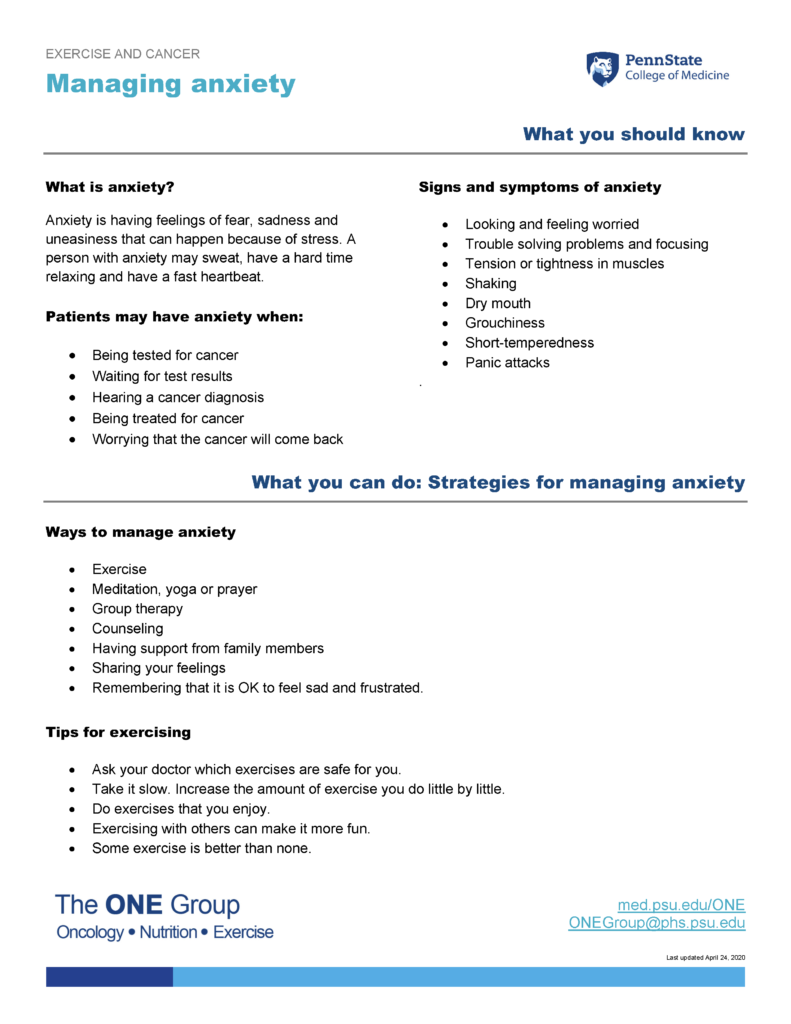Learn about managing anxiety for people with cancer in this guide from The ONE Group (Oncology – Nutrition – Exercise) at Penn State College of Medicine.
Jump to topic
Search
What you should know
What is anxiety?
Anxiety is having feelings of fear, sadness and uneasiness that can happen because of stress. A person with anxiety may sweat, have a hard time relaxing and have a fast heartbeat.
Patients may have anxiety when:
- Being tested for cancer
- Waiting for test results
- Hearing a cancer diagnosis
- Being treated for cancer
- Worrying that the cancer will come back
Signs and symptoms of anxiety
- Looking and feeling worried
- Trouble solving problems and focusing
- Tension or tightness in muscles
- Shaking
- Dry mouth
- Grouchiness
- Short-temperedness
- Panic attacks
What you can do: Strategies for managing anxiety
Ways to manage anxiety
- Exercise
- Meditation, yoga or prayer
- Group therapy
- Counseling
- Having support from family members
- Sharing your feelings
- Remembering that it is OK to feel sad and frustrated
Tips for exercising
- Ask your doctor which exercises are safe for you.
- Take it slow. Increase the amount of exercise you do little by little.
- Do exercises that you enjoy.
- Exercising with others can make it more fun.
- Some exercise is better than none.
Possible exercises you can try
- Walking
- Hiking
- Cycling
- Swimming
- Any aerobic exercise
Note: Aerobic exercise for 30 minutes, three times weekly, has been specifically documented to improve anxiety among people living with and beyond cancer .
Where can I find more information about aerobic and strength-training exercises?
If you are interested in starting aerobic and/or strength-training exercises, The ONE Group (Oncology – Nutrition – Exercise) provides videos demonstrating proper form for more than 50 exercises.
Notes
Contact your physician if:
- You have thoughts of wanting to hurt yourself.
- You have thoughts of wanting to hurt others.
- You experience loss of control.
References
- American Cancer Society
- American College of Sports Medicine Moving Through Cancer initiative
- American Psychological Association
- Anxiety and Depression Association of America
- Harvard Health
- National Cancer Institute

